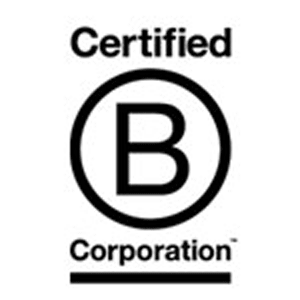 Enacted by California in January 2012, a Benefit Corporation (B CORP) allows companies to operate for a broader purpose. B CORPs are attractive because they downplay the Business Judgment Rule. In a typical corporate structure, the Business Judgment Rule requires a corporation to operate solely for the benefit of its shareholders. This means shareholders can sue corporate officers for failing to maximize profits. However, a B CORP removes the Business Judgment Rule and ensures a corporation is focused equally on internal profits and the creation of public benefit.
Enacted by California in January 2012, a Benefit Corporation (B CORP) allows companies to operate for a broader purpose. B CORPs are attractive because they downplay the Business Judgment Rule. In a typical corporate structure, the Business Judgment Rule requires a corporation to operate solely for the benefit of its shareholders. This means shareholders can sue corporate officers for failing to maximize profits. However, a B CORP removes the Business Judgment Rule and ensures a corporation is focused equally on internal profits and the creation of public benefit.
A B CORP is required to operate for a stated public purpose while remaining accountable and transparent to state auditors. Similar to tax-exempt organizations, a B CORP must disclose, within its Articles of Incorporation (Articles), that it is created for the purpose of making a positive impact on society and the environment. This purpose can be as generalized as improving the local community, or narrowly tailored to one issue, such as increasing solar energy usage by residential homes. When making corporate decisions, the fiduciary duties of B CORP directors are expanded to require consideration of achieving the public purpose, as well as the financial interests of shareholders.
To date, 8 other states, including New York, Vermont, and Washington, have enacted B CORPs, while many others are currently considering B CORP legislation. While it would seem reasonable that tax benefits would be given to corporations operating for public purposes, benefit corporation legislation in California and most other states currently provides no tax, investment or procurement incentives for B CORPs. As for-profit entities, B CORPs do not offer philanthropists the same tax advantages for donations as non-profits.
B CORPs are increasing across the country, and examples can be seen in companies both new and old. Ben and Jerry’s, a well-known ice cream company founded in Vermont in 1978, became the first wholly-owned subsidiary to convert to a B CORP in early 2012. The company now possesses added flexibility to pursue their eco-friendly initiatives, including using 100% recyclable cups and diverting profits to support small Vermont farmers.
Accelerator Management Inc., an incubator company based in San Diego, is prime example of a company that began as a B CORP. Accelerator focuses on aiding start-up/seed-round businesses that produce a public benefit. Other notable B CORPs include Numi Organic Tea and Green Leaf Paper.
Given the focus on providing a public benefit, a B CORP is subject to additional rules of compliance and review. Along with financial reports, a B CORP is obligated to annually report on its overall social and environmental performance using a comprehensive, credible, independent, and transparent third-party standard. This is a self-assessment made by the board of directors regarding the success of the B CORP in achieving its stated public benefit purpose, and the goals of this report are to keep the public informed and the B CORP’s directors accountable. This review must include a description of how purposes were selected, whether any purposes were unmet, and if so, why they were not achieved. When a B CORP fails to create its stated public benefits, it may be punished through a Benefit Enforcement Proceeding (BEP). In a BEP, annual benefit reports carry extra value because they are likely the best documentation of the B CORP’s efforts. Specifically, BEP is a law suit that occurs when a B CORP:
a) fails to achieve its stated purposes;
b) fails to consider the interests of the various stakeholders set forth in the statute; or
c) fails to meet the state transparency requirements.
BEPs are only available to shareholders; directors; investors in the parent company of a benefit corporation subsidiary with at least 5% equity interest; and any other persons specified in the company’s Articles of Incorporation. Potential beneficiaries of B CORPs, such as residents seeking solar installations, do not have standing to seek a BEP. Besides the awarding of attorney fees, plaintiffs can only receive a court order forcing the B CORP to follow through with its stated purpose. Along with prohibiting monetary awards, B CORP directors are further shielded because they cannot be held personally liable for failing to achieve public benefits.
Forming a B CORP in California follows the same path as a normal corporation but does have some additional obligations, which are very easy to complete. Entities have the ability to adopt or terminate B CORP status simply by voting/amending their Articles and by-laws appropriately. If B CORP status is being changed, shareholders who voted against the change have the right of appraisal. This means the shareholder can elect to have their interest bought out by the B CORP for the fair market value of their shares. Even with a valid vote, the B CORP’s Articles must be changed to include the mandatory statements and benefit purposes.
Similar to the B CORP, California has also enacted the Flexible Purpose Corporation. Again, the Flexible Purpose Corporation does not carry any tax benefits but does allow an increased focus on public benefit. Between the two, B CORPs are more common on a national level.
To find out more information about B CORPs and Flexible Purpose Corporations, visit http://www.sos.ca.gov/business/be/.
Article by: Adam Stone, USGCC Policy Manager







